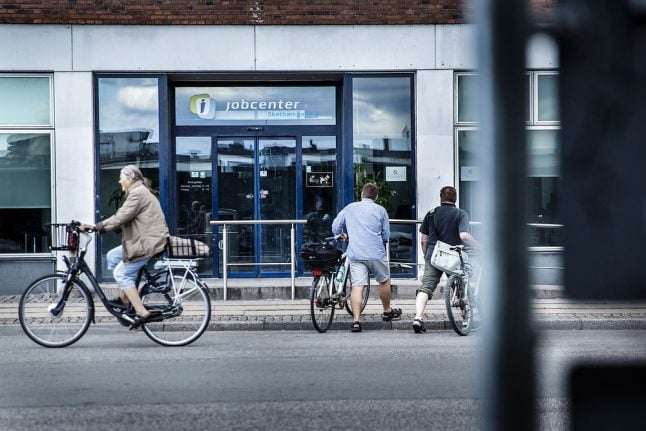Denmark’s a-kasse unemployment insurance system could face serious administrative difficulty if proposed stricter requirements relating to EU residency are passed by parliament, the industry has warned.
Rule changes in question relate to unemployment insurance, dagpenge in Danish, for which membership is obtained by paying a monthly fee to a provider known in Denmark as an a-kasse.
Under current rules, citizens of non-EU and EEA countries with permission to reside in Denmark must have been a-kasse members for one year and have worked full-time in Denmark for one year in order to qualify for the unemployment insurance.
Those requirements are made significantly stricter in the proposed reform, in which all a-kasse members will need to document residence in Denmark or another EU or EEA country for seven of the last eight years in order to be eligible.
As such, providers will not be able to pay out insurance to, for example, an individual who moved to Denmark five years ago to work, immediately joined an a-kasse but has since been made redundant, unless the person in question lived in an EU or EEA country for two of the three years before relocating to Denmark.
This means considerable administrative work for the insurance providers, who do not have access to the relevant information in their own databases and would therefore be required to contact authorities in other countries – a process that is likely to be time-consuming and resource-heavy.
Insurance providers in Denmark can refer to the personal registration number (Det Centrale Personregister, CPR) system to confirm whether a person has left Denmark, but that is where their reach ends, Verner Sand Kirk, director of Danske A-kasser, an industry representative body, told The Local.
“Some countries have a CPR system like us, but then we need access to it, and it’s not certain they’ll want to give us that. It’s also possible that some countries won’t have a CPR system – some countries don’t. Then we need to look at registries in local municipalities where people say they have lived,” Kirk said.
READ ALSO: Is life in Denmark impossible without a personal registration number?
Previous experience with requesting information from authorities in other countries suggests the proposed rules could cause significant delays on payouts, Kirk said.
“Response times are often long and that means that we can’t pay out insurance to people,” he said.
The Ministry for Economic Affairs and the Interior has confirmed that Denmark’s CPR register does not contain sufficient information on addresses abroad to enable the proposed rule to be administered.
“Information on a person’s current foreign address will not, as such, necessarily be updated. A person may, for example, be registered as living in Germany with the CPR, even though that person, after travelling to Germany, then moved on to the United States,” Carsten Grage, a department manager at the ministry, told broadcaster DR in a written comment earlier this week.
Kirk said that the only option for a-kasse insurance providers would be to directly contact authorities in other countries.
The new rules would create serious administrative difficulty for no tangible benefit, he said.
“We are against this, because it is an attempt to solve a problem that we don’t believe exists.
“The (non-EU or EEA citizens) who will be affected by this are people who are already required to have worked full time for one year if they have moved to Denmark. That is already a very strong protection against potential exploitation of the system. Hardly anyone would travel to Denmark, work full-time for a year and pay into an a-kasse with the intention of later becoming unemployed,” the Danske A-kasser director said.
The new rules could potentially make Denmark less attractive to skilled foreign workers.
“We were given an example of a colleague from Iran who had a job, came to Denmark and worked continuously for three years, is an a-kasse member and everything. If he loses his job, he won’t be able to receive unemployment insurance for six years. We don’t think that’s fair,” Kirk said.
“We can’t claim that we’re pleased to see skilled people coming in from other countries while also telling them they can’t be insured if they lose their jobs,” he added.
READ ALSO: PM, opposition leader discuss employment of skilled foreign workers at conference
The government, which has final responsibility for application of the rules, is yet to clarify guidelines on how to address the issue, Kirk told The Local.
The proposed law change would be applied retroactively, meaning that anyone – Danish or foreign citizen – who becomes unemployed after it takes effect could be at risk of waiting to receive insurance payouts until their provider is able to confirm the whereabouts of any periods of residence abroad.
According to information provided by the Ministry for Employment to DR, EU countries are required to provide further required information to the unemployment insurers.
The broadcaster was unable to reach employment minister Troels Lund Poulsen for comment.
The proposal, which is included in a tax agreement between the government and the Danish People’s Party, is scheduled to go before parliament in October.
Should the proposal be accepted, changes could come into effect from January.
Just under 600,000 foreign-born people are currently living in Denmark, according to the latest figures.
READ ALSO: Internal division over proposed curbs on Danish citizenship: report



 Please whitelist us to continue reading.
Please whitelist us to continue reading.